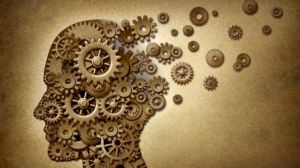If you’re feeling cynical about the human race, a site to stay away from is Wikipedia’s List of Cognitive Biases. It describes more than 150 ways in which our thought processes systematically deviate from objective observation and rational thinking. It’s a humbling list, a reminder that the evolution of our brains has left us with some mental habits that don’t make it easy to see the world as it is.
Here’s a sampling. Quotations from Wikipedia.
Gambler’s Fallacy: “I’ve flipped heads with this coin five times consecutively, so the chance of tails coming out on the sixth flip is much greater than heads.” No, it’s not. The odds are 50-50 for every flip, regardless of the length of any previous sequence that produced one result. Applicable to apparent batting slumps and other so-called streaks of good or bad luck or performance.
False Consensus Effect: “The tendency for people to overestimate the degree to which others agree with them.” I’m sure you’ve all found this to be true.

Actor-Observer Bias: If you cut me off in traffic, you’re a complete jerk. I blame you and your rotten personality. But if I make a quick turn in front of you, I had good reasons for doing so and you’re a jerk for complaining. On the whole, we’re not very perceptive about our own characteristics and motivations—or those of other people. We are, however, for evolutionary reasons, quick to identify whatever and whomever might be a threat. Such attribution errors create plenty of misunderstandings and conflict.
IKEA Effect: “The tendency for people to place a disproportionately high value on objects that they partially assembled themselves, such as furniture from IKEA, regardless of the quality of the end result.”
Illusion of Truth Effect: “A person is more likely to believe a familiar statement than an unfamiliar one.” Perhaps this has been a safety measure for our species in the long run.
Reminiscence Bump: “The recalling of more personal events from adolescence and early adulthood than personal events from other lifetime periods.” Perhaps the vivid imprinting of our first mistakes and successes has helped us survive. In general, our memories are biased towards thinking highly of ourselves.
Illusion of Transparency: “People overestimate others’ ability to know them, and they also overestimate their ability to know others.” On the whole, such overestimating encourages us to form social bonds. If we were sharply realistic about how difficult it is for one person to know another, we might be less likely to go to the trouble or take the risk.
These and other biases have either served our species in the distant past or result from the brain’s limited processing capacity. Since such biases won’t go away anytime soon, we had better compensate for them as best we can. Wisdom often amounts to an effort to do exactly that: to be cautious and nonjudgmental in order to give our cognition its best chance.
